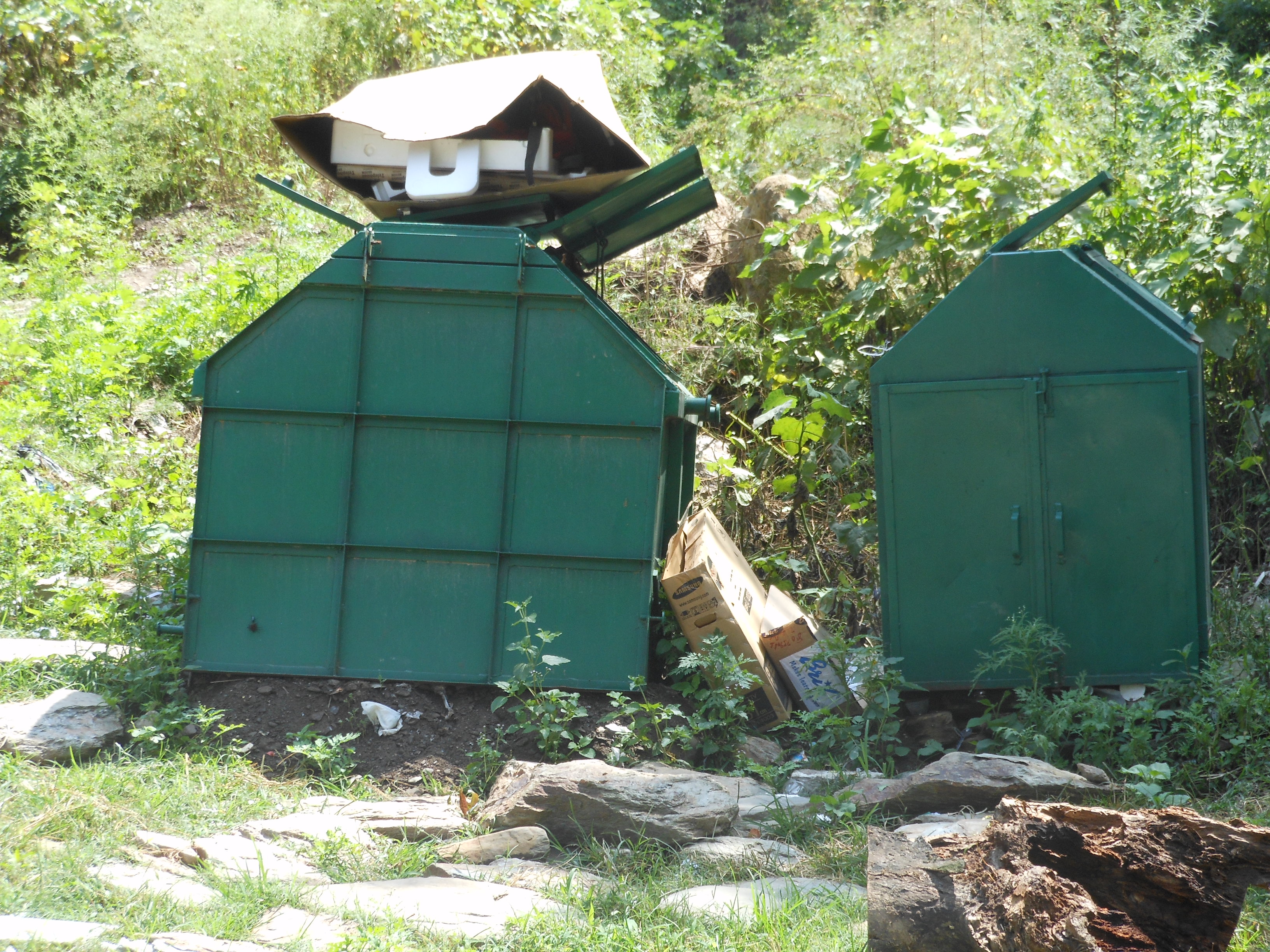Solid Waste Management, IIT Mandi, Kamand Campus.
Past Situation : We were experiencing stinky and fowl odour, while walking along the road to the south. This wass due to the overloaded big green dustbins located to an area after few meters from faculty and staff quarters. These bins were not maintained properly and wastes were disposed off here and there due to overload of dustbins. The adjoining area being filthy, no one could reach upto the dustbins easily.

Fig:1 Solid waste
Present Situation :
A) Segregation of wastes :
New colour coded dustbins were procured. Three seperate dustbins, near each block for disposal of different types of wastes. Segregated wastes are now dumped in the particular dustbins of Green, Blue, Yellow colour.
1. The Green-coloured dustbins are meant for wet and bioderadable wastes. For eg: kitchen wastes including vegetables and fruits skins. 2. Blue dustbins are meant for disposal of plastic wrappers and non-bioderadable wastes. 3. Yellow dustbins are meant for papers and glass bottles. 4. Cleaning or emptying of the dustbins is being done on a regular basis at 10:00 to 11am and 3:00 pm everyday.
Fig: 2 Waste Segregation inside campus
B) Vermicomposting is being done with the segregated wet kichen wastes. The manure generated is in turn used in gardening of herbal and botanical gardens inside the campus. This is a process of natural recycling.
Fig 3 Vermicompost Pit
Fig 4 Herbal Garden uses manure from Vermicompost Pit
Fig 5 Botanical Garden uses manure from Vermicompost Pit
As for now, the dry and non-biodegradable wastes are sent to Mandi. So, unnecessary accumulation of mixed wastes are avoided in the campus.
The hazardous wastes from AMRC laboratory and Medical Unit are seperately collected by a local group of contractors “ Enviro Engineers, Shimla ”, for the management and safe disposal according to the norms of Himachal Pradesh State Pollution Control Board.
Conclusion : The solid waste and fowl odour is being managed in this way by following the simple steps like - segregation, vermicomposting, using manure to yield plantation and flowering in herbal and botanical gardens, which in turn imparts fresh ecological balance as well as natural beauty of the campus.
Fig 6 Nurturing Plant in the Botanical Garden
Fig 7 Growth of Natural Beauty and maintainance of Ecological Balance
Future Prospect: Attempts are in progress to improve the process of solid waste management and like natural recycling by vermicomposting, future plans are there for artificial recycling of plastics, glass, paper and metals, which in turn can yield some important useful materials for using inside the IIT Mandi campus itself.
